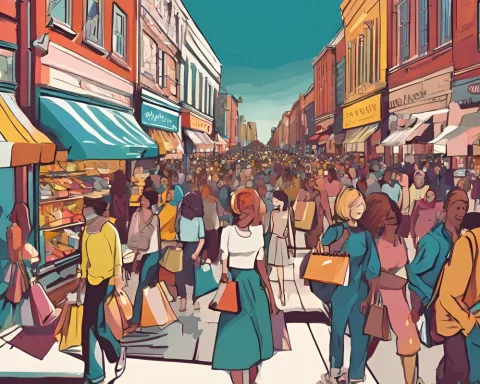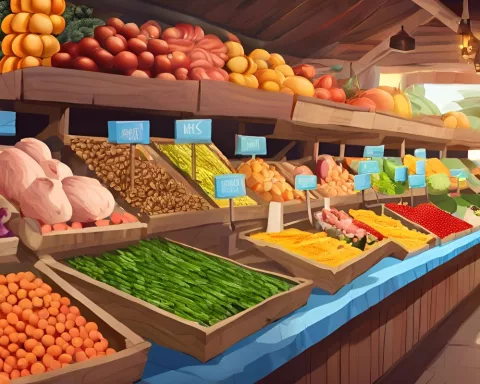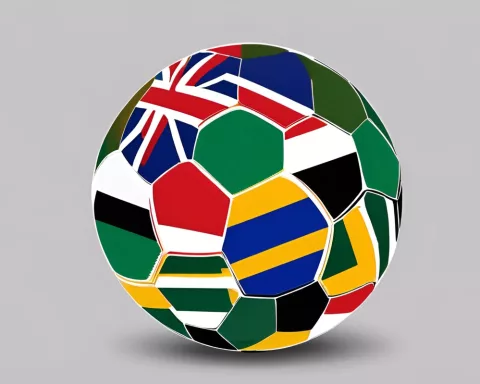Belgian football coach, Hugo Broos, shares his experience adapting to a new culture in Mzansi as the coach of the Bafana Bafana team. Despite initial culture shock, Broos draws parallels between his life in Mzansi and his life back in Belgium, praising the country’s progress and development. His journey highlights the charm of cultural diversity and the universal appeal of football as a bridge between cultural differences.
Hugo Broos, the coach of the Bafana Bafana football team, shares his cultural awakening in Mzansi. Originally from Belgium, Broos was surprised by the local food staple, maize porridge known as pap. Despite the cultural difference, Broos draws parallels between his lifestyle in Mzansi and his life back in Belgium, praising Mzansi’s progress and development. Broos’ experience is a first-hand account of adjusting to a new culture while preserving personal identity.
Culture Shock in a Foreign Land
Hugo Broos, the accomplished coach of the Bafana Bafana football squad, finds himself immersed in an interesting cultural awakening as he acquaints himself with his fresh surroundings in Mzansi. Originally from Belgium, Broos is a seasoned football manager with an international career that has given him a distinctive outlook on global cultures.
Certainly, Broos is no newbie to fresh encounters. However, he concedes to being initially surprised by a common food staple in Mzansi – the maize porridge known as pap. This beloved regional fare had sparked curiosity and mild hilarity for the Belgian coach. Broos, sharing his thoughts with TimesLIVE, said, “I can’t help but observe the players. They pile so much pap on their plates, it makes me wonder, ‘Will he really finish all of that?'” Despite his initial bewilderment, Broos’ observations underline the vibrant cultural character of Mzansi that stretches far beyond its culinary preferences.
Comparing African Football Experiences
Broos’ coaching journey in Mzansi isn’t his first African football adventure. His previous tenure in Cameroon saw him guide the national team to victory in the Africa Cup of Nations. But comparing his experiences in the two nations offers an intriguing contrast. While his Cameroonian experience brought professional triumph, personal satisfaction remained elusive.
However, his experience in Mzansi presents a vastly different narrative. Broos draws parallels between his lifestyle in Mzansi and his life back in Belgium, particularly in his upscale Sandton neighborhood in Johannesburg. Here, he savors simple pleasures like grocery shopping and eating out. “Life here surpasses Cameroon by a large margin,” he states emphatically, underscoring the striking difference while praising Mzansi’s progress and development.
Yet, beneath his contentment, a hint of nostalgia resonates in his reflections. Amid the convenience and luxury, Broos yearns for his family back in Belgium, finding comfort in the energetic music, culture, and cuisine of Mzansi. However, the simple pap dish serves as a constant reminder of the cultural chasm he’s crossing.
Achievements and Aspirations in Mzansi
In addition to his cultural explorations in Mzansi, Broos has also led Bafana Bafana to a commendable bronze finish in the recent Afcon tournament. His influence has made a lasting impression on the team, reflecting the universal appeal of football and its ability to bridge cultural differences.
As Bafana Bafana gear up for upcoming friendlies against Algeria and Andorra, the 71-year-old coach is keen to further his African journey. Despite the striking cultural contrast and geographical separation, Broos confronts the challenges head-on, demonstrating his resilience not just as a celebrated football coach, but also as a global citizen.
Embracing Cultural Diversity
Interestingly, the journey of Hugo Broos stands as a testament to the charm of cultural diversity and the irresistible appeal of Mzansi. His experience provides a raw, first-hand account of adjusting to a new culture while preserving personal identity – a dilemma faced by many global citizens today. It’s this fusion of cultures, flavors, and experiences that composes the captivating mosaic of contemporary society.
Whether it’s the culture, lifestyle, football, or even the pap, Mzansi continues to make a profound impact on Hugo Broos, just as he imprints his influence on the Bafana Bafana and the wider football community. His personal and unique journey is a captivating tale of transformation, adaptation, and the potency of football as a universal language.
1. Who is Hugo Broos?
Hugo Broos is a Belgian football coach who is currently the coach of the Bafana Bafana football team.
2. What was Broos’ initial reaction to the local food in Mzansi?
Broos was initially surprised by the local food staple, maize porridge known as pap.
3. How does Broos compare his experiences in Cameroon and Mzansi?
While his Cameroonian experience brought professional triumph, personal satisfaction remained elusive. In Mzansi, Broos draws parallels between his lifestyle in Mzansi and his life back in Belgium, particularly in his upscale Sandton neighborhood in Johannesburg.
4. What has Broos achieved as the coach of Bafana Bafana?
Broos led Bafana Bafana to a commendable bronze finish in the recent Afcon tournament.
5. What does Broos’ journey highlight?
Broos’ journey highlights the charm of cultural diversity and the universal appeal of football as a bridge between cultural differences.
6. What impact has Mzansi had on Broos?
Mzansi continues to make a profound impact on Hugo Broos, just as he imprints his influence on the Bafana Bafana and the wider football community.












